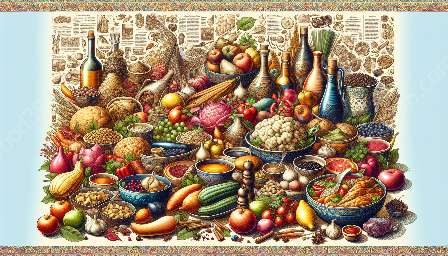Early agricultural practices had a profound impact on the formation of early societies and the development of food cultures. The transition from hunting and gathering to agriculture played a crucial role in shaping human communities and civilizations.
Origins of Agriculture
Early agricultural practices began approximately 10,000 years ago during the Neolithic Revolution. The shift from a nomadic lifestyle to settled communities was propelled by the domestication of plants and animals. This transition allowed early humans to cultivate crops and raise livestock, providing a more stable and sustainable food source.
Social Impact
The development of agriculture led to significant social changes. With a consistent food supply, communities could grow larger and more permanent. Specialized labor roles emerged, promoting the division of labor, trade, and the development of social hierarchies.
Economic Development
Early agricultural practices also spurred economic growth. Surpluses in food production enabled trade and the accumulation of wealth. This economic evolution laid the foundation for more complex societies and the rise of urban centers.
Food Cultures and Cuisine
The cultivation of specific crops and the domestication of animals varied across different regions, giving rise to diverse food cultures and culinary traditions. Ingredients that were abundant in certain areas became staple food items, influencing the flavors and cooking methods of early societies.
Evolution of Food Culture
Over time, food culture evolved as societies interacted through trade and colonization. The exchange of culinary practices and ingredients enriched food cultures, leading to the development of unique regional cuisines.
Impact on Society and Culture
Early agricultural practices had a profound impact on society and culture. The ability to produce a reliable food supply allowed civilizations to flourish, building the foundation for the development of art, architecture, and governance.
Conclusion
The influence of early agricultural practices on the formation of early societies and the development of food cultures cannot be overstated. Understanding the origins and evolution of food culture provides valuable insights into the shaping of human history and the diverse culinary heritage we cherish today.


